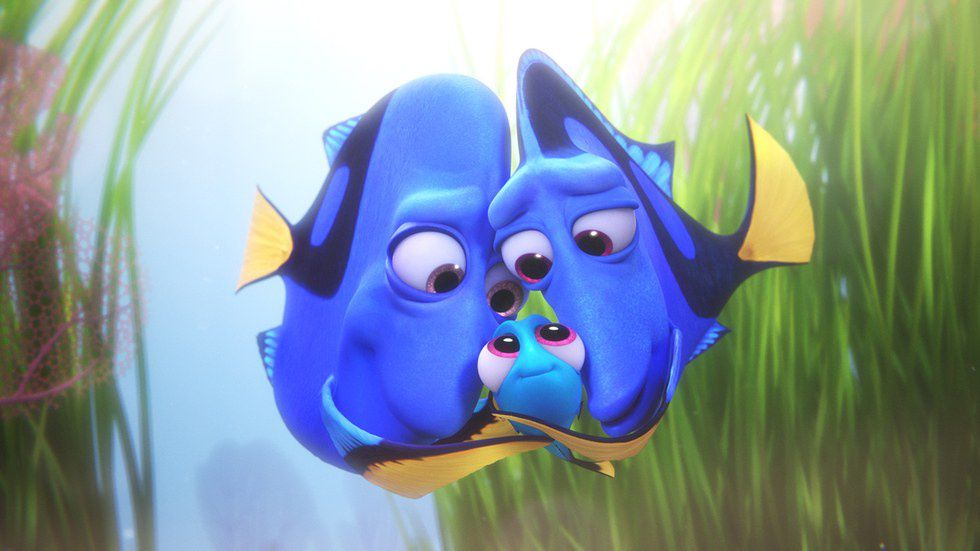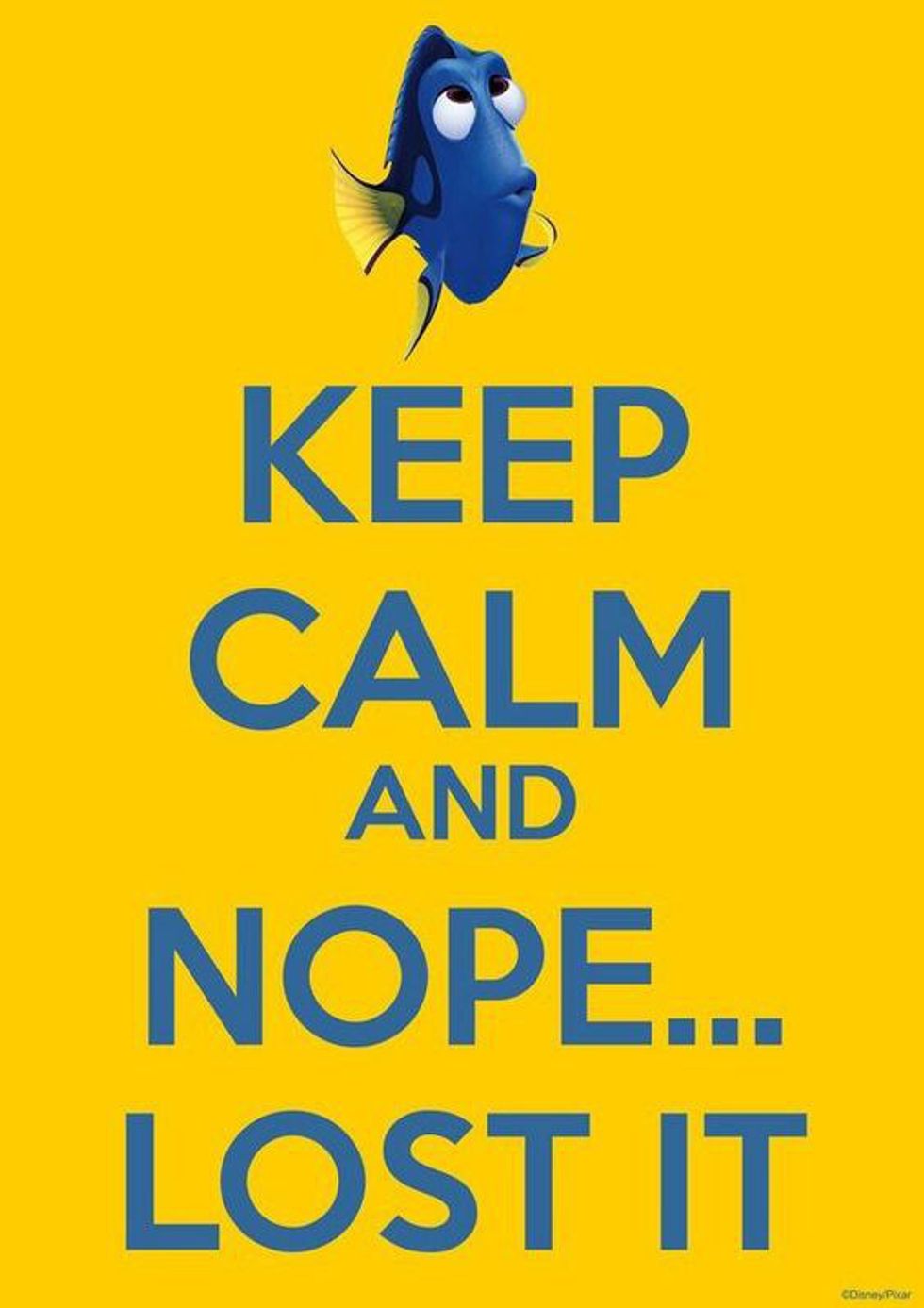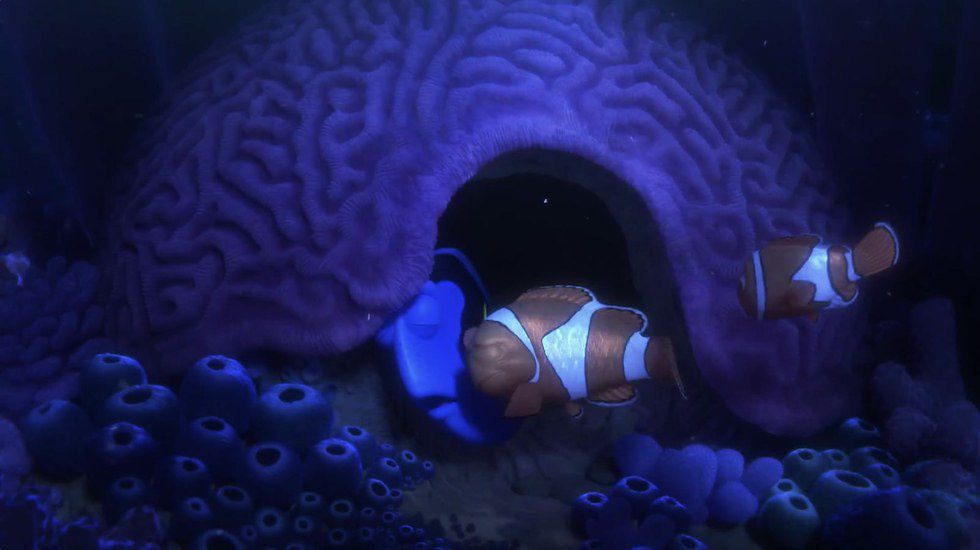This article contains spoilers.
I recently went to see the new movie "Finding Dory." As I entered the theater with my mother, she leaned over to me and said, “There have been a lot of critiques about this movie from foster and adoptive families because, sadly, it’s not realistic.” Curious as to what she meant, I probed a little more, but did not want the movie to be spoiled, so I grabbed my seat, sat back and watched.
All too quickly, the reason for the critiques became evident. I did my best to hold back the tears as the movie played out, but it was definitely difficult. "Finding Dory," while an excellent movie that was very well created, does not seem to consider the aspect of foster care and adoption. If you have a foster or adopted child, here are my reasons you should not take them to see "Finding Dory."
1. Dory had amazing, positive flashbacks.
My first problem with this movie in regard to foster care and adoption was that Dory had many flashbacks of her childhood. They were positive flashbacks, and often, she was found laughing and giggling with her parents in these flashbacks. While it is amazing that she had such a positive experience with her family, this is not always realistic, especially in foster and adoptive cases. Many foster children have been removed from their homes because of the brokenness that exists there—whether it be drug addiction, abuse, etc., there exists a brokenness that makes their home unsafe. Many of these children have been neglected, abandoned and abused, and as I sat there, knowing my own story, I struggled with the questions stirring inside. “Why did my parents not fight for me?” “Why do my memories of my childhood not look like Dory’s?"
2. Dory’s parents continually searched for her.
I love that Dory’s parents searched and searched for her. They even laid shells in a line on the ocean floor, reminding Dory that if she follows the shells, they will lead her home. Dory’s reunion with her parents was almost too perfect, though. This reunion is simply not realistic for many children in the foster care system, and sadly, I think it portrays an idealistic level of hope. I believe that it could all too easily instill a level of hope for foster children that if they “just follow the shells," they will be able to return home, but sadly, that is not always the case.
3. The separation was Dory’s fault.
Throughout the movie, Dory’s separation from her parents was portrayed as her fault. The producers of the movie made it seem as though Dory’s short-term memory loss was the reason that she was separated from her parents, and Dory saw her short-term memory loss as her fault. Maybe that was the best reason, but in real life, the child is not at fault. Children are not just removed from their homes because they are acting out or behaving poorly. Instead, children are removed from their homes because their parents are doing something they should not be doing. Many children will blame themselves for this, though. I know I blamed myself when I spoke out about what was happening in my home. I carried the guilt and the shame, believing that I was the one who had torn my family apart.
4. Dory decided she was ready to go home, so she did.
This was probably my deepest issue with the movie. Dory was ready to go home, she was remembering more and more and so she set herself on a mission and she went home. While that is great and dandy, again, it is simply not realistic or even reasonable. For so many reasons, children in the foster care system cannot simply decide, “I want to go home today," and go home. Their home is still unsafe, and today is not the day for them to return home -- at least not yet.
All in all, these things made me cry. They made my heart break for the children who do not yet understand why they’ve been ripped away from their biological families. These things made me fall to the floor later that evening as I wrestled with my own story and my own wanting to “just go home." My desire to “just go home” doesn't mean that I don't love my adoptive family—I most definitely love them more than I will ever be able to express—but I miss my biological family.
Am I saying, “Don’t take your kiddos to see ‘Finding Dory’?” No way. But I am saying, please be cautious and aware that if you are taking foster and adoptive kiddos to see this that you may need to have some hard conversations both before and after the movie to ensure they are doing well.





















